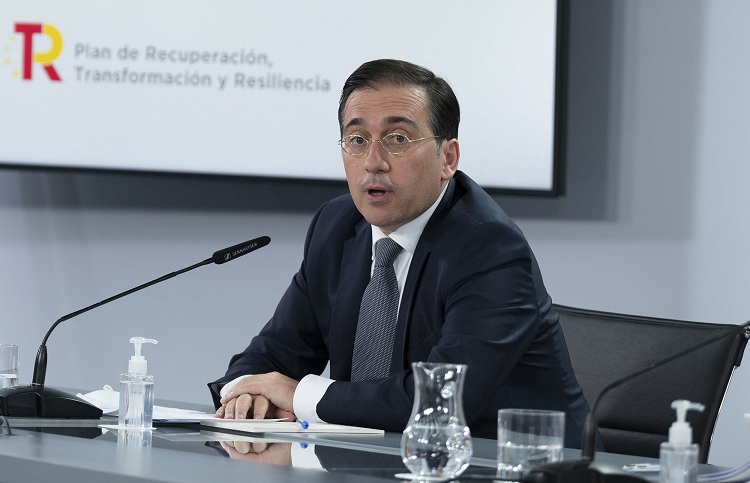The Diplomat
The Council of Ministers approved yesterday the draft bill of the Law of Cooperation for Sustainable Development and Global Solidarity, which introduces, among its main novelties, the granting of “legal status” to Spain’s commitment to allocate 0.7% to development aid and the creation of a new Statute of the Cooperant.
“We are facing an avant-garde law that places Spain as a more dignified country within the international community and as a reference in cooperation models”, declared the Minister of Foreign Affairs, European Union and Cooperation, José Manuel Albares, during the press conference after the Council of Ministers.
The aim of the draft bill, which repeals in its entirety the Cooperation Law of July 7, 1998, is to “update Spanish development cooperation policy to the present parameters of the global concert and commitments of the 2030 Agenda,” the Council of Ministers assured. Once the regulation has been approved, the Government’s objective is for the draft bill to reach the Parliament at the beginning of April so that it can be approved during this session, which ends in June.
According to Albares, one of the main novelties of the draft bill is that it “grants, for the first time, legal status” to the commitment acquired by Spain before the UN and the European Union to allocate 0.7% of the Gross National Income to Official Development Aid in 2030, for which “a multiannual planning is established based on budgetary availability”. In this regard, the minister recalled that the General State Budget for 2022 increases development aid by almost 400 million euros and recovers “a decade of setbacks” in this area.
The future law also proposes “a more agile and efficient financial cooperation between all the administrations” involved in official development aid (General State Administration, autonomous communities, local entities and city councils) and proposes an improvement in governance, transparency and accountability in the cooperation system through the creation of a Higher Council for Cooperation and a Sectorial Conference with the Autonomous Communities and Local Entities, as a space for coordination. In addition, the existing Interministerial Commission, which will be attended by the Secretaries of State, will be elevated in rank.
The regulation, according to Albares, establishes “a far-reaching reform of the cooperation system” through the development of a new statute for the Spanish Agency for International Cooperation and Development (AECID) and a new Statute for Aid Workers “to dignify the work and professional careers” of humanitarian personnel.
The draft bill also proposes a new instrument for financial cooperation, through a regulatory framework of subsidies adapted to the specificities of international cooperation, in order to increase “the speed and agility to channel this type of funds” and to “mobilize funds beyond ODA”. It also provides for the creation of the Spanish Fund for Sustainable Development (FEDES), a financial cooperation instrument without its own legal personality that will assume the functions of the Fund for the Promotion of Development (FONPRODE) “with new instruments and more flexible and agile procedures”.
Among the geographical priorities of Spanish cooperation, the draft Law includes for the first time the Sahel and maintains the traditional areas, including Latin America and the Caribbean. Likewise, aid will be reinforced in the event of unforeseen crises, such as those in Afghanistan, Haiti or the typhoon in the Philippines.
During the presentation of the draft bill in the International Cooperation Commission of the Congress, which took place last December 22, Albares expressed his wish to count on the support of all the groups and asked the PP, as an opposition party, to have the same attitude as the PSOE had during the approval of the 1998 Law, when the Popular Party was in power. In their subsequent interventions, the opposition groups offered their cooperation to move the text forward and the PP spokeswoman, Paloma Gázquez, offered the “outstretched hand” of her party so that the law would be “approved by a very large majority” and asked the Government to show the same “generosity” that the Government of José María Aznar had with the PSOE during the negotiations of the 1998 law.







